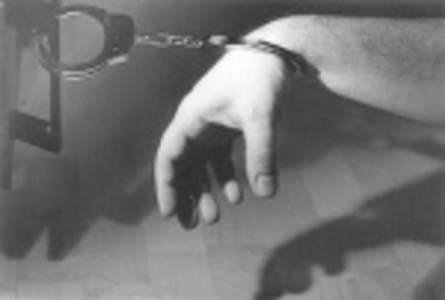Prank or crime?

David Kernell was sentenced to prison today for one year and one day as a result of his hacking into the Yahoo account of Sarah Palin during the 2008 Presidential Election. Kernell’s lawyer had hoped for probation, describing the actions of the then 20-year-old college students as “a prank that spun out of control.”
Paul Chambers lost his appeal in a U.K. Crown Court this week, as he sought to overturn his conviction for “improper use of public electronic communications network.” Chambers, when learning that his local airport was closed, Tweeted that it had better reopen or “I’m blowing the airport sky high!!!” – something described as simply “a foolish prank.”
And the FBI is reportedly investigating the recent DDoS attacks against pro-copyright organizations undertaken by Anonymous, a group known for its online pranks. Recent targets of the denials-of-service have included the RIAA, the MPAA, and KISS bass-player Gene Simmons.
The Subversive Power of Laughter
It’s okay if you laughed at any of these. And it’s okay if you didn’t. Calling these acts “pranks” doesn’t mean that they’re necessarily funny. The authorities clearly don’t think so. But nor does calling them “pranks” mean that they’re necessarily harmless.

Even if they don’t cause “harm” per se, a good prank always makes an impact. It might have material consequences – the toilet-papered house or the DDoS attacked website. Or the consequences might involve appearances – a pie in the face or a Pirate Bay redirect is meant to bruise the ego more than it bruises the chin.
Not all pranks, of course, run afoul of the law. But they are intended to upset or embarrass those in power. They are disruptive by design.
The Repercussions of Pranks
What’s interesting about the prank isn’t just the act itself, but the reaction it elicits – from the “victim” and the audience and the audience (The Internet). Saying “it was just a prank,” might be a weak defense in the criminal courts. But when a prank results in prosecution or penalty, it can make those in power appear humorless and over-reactive. And that in turn can garner support for the prank and the prankster.
Such was the certainly case for Paul Chambers, whose “joke” was retweeted by thousands of people today. Using the #IamSpartacus hashtag, they repeated his words in defiance of the court ruling, demonstrating their solidarity in what’s seen by some as an issue of free speech.
In explaining the Twitter prank-protest, The New York Times notes how “hard it has become for law enforcement officials to know how to respond to the anarchic culture of social media sites, especially Twitter, with its rapid-fire, off-the-cuff, often satirical exchanges.” In other words, they just don’t get the joke.
Photo credits: Flickr user Marc Coggins





















